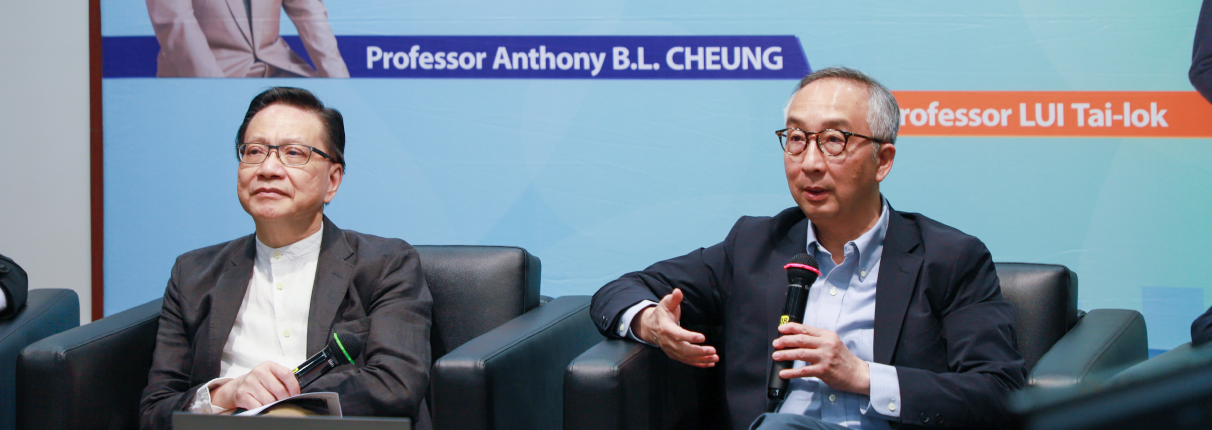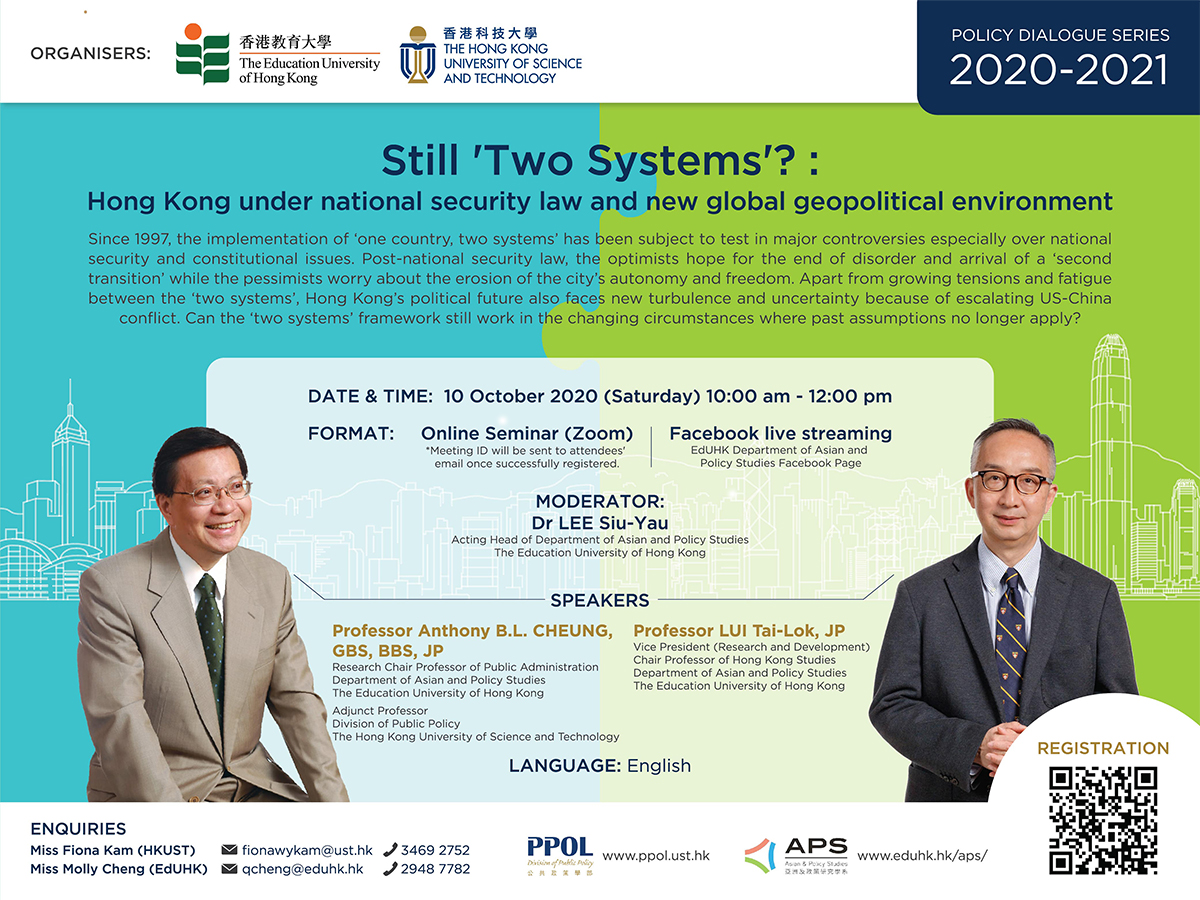Since 1997, the implementation of 'one country, two systems' has been subject to test in major controversies especially over national security and constitutional issues. Post-national security law, the optimists hope for the end of disorder and arrival of a 'second transition' while the pessimists worry about the erosion of the city's autonomy and freedom. Apart from growing tensions and fatigue between the 'two systems', Hong Kong's political future also faces new turbulence and uncertainty because of escalating US-China conflict. Can the 'two systems' framework still work in the changing circumstances where past assumptions no longer apply?











